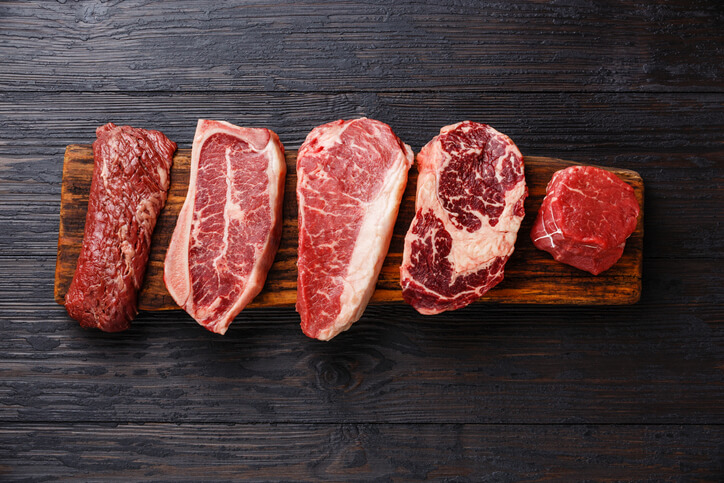The carnivore diet, or all-meat diet, involves eating meat for every meal. This means your diet includes plenty of protein, fat, and almost zero carbohydrates. It also means that you get your energy primarily from protein and fat and consume close to zero carbohydrates. Meat has some essential nutrients and minerals like proteins, zinc, vitamin B, iron, and magnesium, which can improve and enhance your health. In this article, we bring to you six big benefits of following a carnivore diet. There are various resources available online for developing your carnivore style and get more information for everything related to the Carnivore Diet and lifestyle.
(Image Source: Pixabay)
Weight Loss
Adopting a carnivore diet will help you to lose those extra kilos due to a lack of a sufficient amount of carbohydrates. The key reason your body builds up fat is because your body isn’t immune to insulin. If you eat carbohydrates, they are turned into fat instead of energy. However, in a carnivore diet, instead of carbohydrates, your body burns fat for food. You will not get insulin spikes and there’s no need for the body to retain incoming calories as body fat. At the same time, there is a psychological effect of eating a carnivore diet, involving the same food, on weight loss. Since you eat the same food every day, your brain doesn’t get enough satisfaction value from food, so you start consuming less food in general. There are suggestions that eating the same food will help you to stop mindless eating habits.
(Image Source: Pixabay)
Lowers Inflammation
A carnivore diet has gained momentum in people with autoimmune disorders as a possible anti-inflammatory diet. A Carnivore diet is a high-fat, low-carb diet that decreases inflammation and improves blood lipids more than a high-carb, low-fat diet does. Researchers have carried out studies in this regard. In 2013, a journal Metabolism carried a study comparing people who ate a high-fat, low-carb diet to those following a low-fat, high-carb diet. After 12 weeks it was found that the high-fat eaters had lower markers of systemic inflammation.
Simpler Diet to Follow
Carnivorous diet is incredibly simple to implement. If you have a hectic schedule and you sometimes get confused about macronutrients, calories, food timing, and planning, then consuming a meat-based diet can be a great way to start your diet. Although a meat-rich diet may sound like it may be costly in terms of money, the quantities you actually consume might not be huge, as meat is so satiating.
(Image Source: Pixabay)
Mental Clarity
Carnivorous dietitians say that they think more clearly and that they concentrate better almost immediately. Our brain is made up of almost 60% fat, so adopting a diet made up of fats and protein, it’s normal to start having longer concentration spells and a better mood. Mental health issues stem from problems including inflammation and nutrient deficiencies. A Carnivore diet will counteract inflammation by cutting off all the garbage you’re intolerant to: including seed oils, fructose, glucose, and even a lot of vegetables. Zinc, DHA, Vitamin B12, Iron, and Vitamin B6 deficiencies are all associated with depression. A carnivore diet can provide your body with these important nutrients that you need for good mental health.
Low-residue Diet
A low-residue diet is a diet that restricts foods with high fiber, such as whole grains, nuts, beans, fruits, and vegetables. ‘Residue’ is basically non-digested, stool-forming food. Meat is mainly made from protein and fat that is absorbed high up in the gastrointestinal tract, having little residue left to disturb or inflame the intestine. A low-residue diet is usually recommended for people with inflammatory bowel disease or irritable bowel syndrome to relieve symptoms such as diarrhea, bloating, vomiting, and stomach pain. A zero-fiber diet resolves constipation and nearly gets rid of gas and bloating. Therefore, a carnivore diet is a very low-residue diet and offers relaxation for the gut.
(Image Source: Pixabay)
Higher Testosterone
Diets that are high in fat have been shown to increase testosterone levels. Research published in the American Journal of Clinical Nutrition found that men who followed a 10-week high-fat, a low-fibre diet had 13 percent higher overall testosterone compared to those who eat low-fat and high-fiber. Higher testosterone increases muscle gain and accelerates fat loss. A carnivore diet is rich in protein, Vitamin D, Vitamin A, and cholesterol all help to increase your testosterone levels.
For all the meat lovers, a carnivore diet when taken considerably can enhance your health. However, like any other diet, it has its disadvantages as well including high cholesterol, lack of fibers, and important nutrients like vitamin C.





